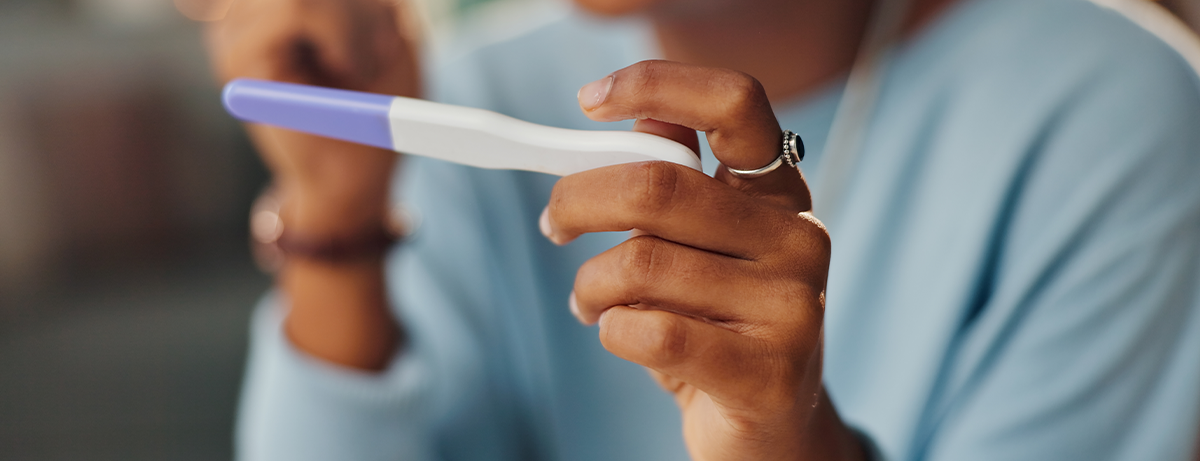15% off £25 or 20% off £35
Code:BASKET
How to manage your weight during menopause

Worried about menopause weight gain? Discover smart, simple ways to stay in control, support your changing body and feel your best through every stage of the transition
Summary
1Why does menopause cause weight gain?
A few different key factors can contribute to weight gain during menopause…
2How common is weight gain during menopause?
More than half of women gain weight as they approach menopause, but that...
3Healthy weight tips for menopause
Beyond food and fitness, your overall lifestyle can also influence weight gain during menopause…
More than half of women gain weight during the perimenopause transition – typically around 1.5kg a year.1 A drop in oestrogen is one of the main drivers of this change (as well as being behind many other menopause symptoms).1
Gaining weight can feel frustrating, especially when you’re trying your best to stay healthy. But try to be kind to yourself – your body’s going through some big changes. We’re here to help you understand why it’s common to put on weight around menopause and what you can do to support your health during this time.
Why does weight gain happen during menopause?
As your body transitions through menopause, it’s not uncommon to notice some changes on the scales. A few key factors come into play during this time, from shifting hormones to changing sleep patterns – all of which can quietly contribute to weight gain.
Changing hormone levels
Oestrogen levels fall around menopause, which can cause the body to store more fat (especially around the stomach, upper body and internal organs like the heart).1,2 Lower oestrogen may also slow down how much energy your body burns, which can contribute to gradual weight gain.2
Your cortisol (stress hormone) levels can fluctuate during menopause.3 Alongside decreased oestrogen levels, increased cortisol may make it easier for you to gain weight – particularly around your stomach.4
Make sure to exercise regularly, get enough sleep and focus on your general wellbeing to help stabilise your cortisol levels and the production of feel-good hormones (endorphins).5
Decreasing muscle mass
Both muscle mass and strength tend to decline during the menopausal transition.6 Again, this is partly due to falling oestrogen levels, as muscle cells have receptors that respond to oestrogen.6
Other reasons for losing muscle mass include the body breaking down more muscle than it builds and muscle tissue becoming less responsive to resistance training.7

Getting less sleep
Between 40–56% of women going through menopause report sleep difficulties.8
Symptoms like hot flushes, low mood and night sweats can all disrupt your rest.2,8 And when sleep suffers, so does everything else – it’s harder to stay active and weight gain becomes more likely.2
Increasing insulin resistance
After menopause, women tend to develop higher insulin resistance than before.9 This not only raises the risk of type 2 diabetes, but it can also lead to weight gain (especially around the middle). Once again, shifting oestrogen levels are likely a key reason behind this change.9
How common is weight gain during menopause?
More than half of women gain weight as they approach menopause, but that doesn’t mean weight gain is inevitable.1
A number of factors can influence weight gain during this time, including:1,7,10
- diet
- exercise
- genetics
- the gut microbiome
- stress
- existing health conditions
The good news? By eating well, exercising regularly and focusing on a healthy lifestyle, it’s possible to manage your weight through the transition.10
Best exercises to try for weight management during menopause
Staying active is one of the most effective ways to manage weight as you age.2 But which types of exercise are best during menopause?
Both cardio and resistance training play an important role – cardio can help burn fat, while resistance exercises are key for maintaining (and even building) muscle mass.2 On top of that, regular exercise (specifically weight-bearing exercise like running and walking) helps protect against osteoporosis. This is common through menopause, and it’s where bone mineral density decreases (which can appear like thinning).10
The British Menopause Society recommends doing strength-based exercises 1–2 times per week, ideally as part of your gym routine.1 This could include simple but effective moves like bicep curls, box press-ups, ankle taps and squats.1
How much exercise do I need?
The NHS recommends at least 150 minutes of moderate activity per week or 75 minutes of vigorous activity for adults aged 19 to 64.11
Moderate activity gets your heart rate up but still lets you hold a conversation, while vigorous activity makes you breathe faster and limits you to just a few words between breaths.11
Need ideas? Check out our guide on ways to exercise during perimenopause.
Exercise is just one tool in your toolbox – diet is another.
Nutrition tips for weight management during menopause
Eating well is key to managing your weight and maintaining muscle through perimenopause and beyond.12
One simple starting point is keeping a food diary.1 Tracking what you eat each day can help you spot patterns, highlight habits you didn't realise you had and make it easier to identify small changes that might have a big impact.1
Simple habits like planning your meals and snacks, eating more slowly and adding more fruits and vegetables to your plate can help your diet in a manageable way.1
If you’ve noticed a few extra pounds and are wondering how to lose weight during menopause, diet is one of the most important things to think about.13 As muscle mass tends to decrease around this time, your body may need fewer calories than before – but your individual needs will vary depending on many factors like how active you are or whether you’ve got any conditions or injuries.13
Some dietary changes you might want to consider include:4
- considering decreasing your portion size
- eating at least five portions of fruit and vegetables per day
- limiting heavily processed foods that are high in saturated fat, salt or sugar 14
- watching your salt intake (the NHS recommends no more than 6 grams a day) 15
- decreasing your alcohol consumption

If weight loss is your goal, creating a calorie deficit of around 500 calories a day – alongside regular exercise – can be an effective approach during menopause.1 Make sure you speak with your doctor or a dietitian if you want to lose weight, as they’ll provide you with personalised advice and ensure you do so in a healthy, sustainable way.
But it’s not just about cutting calories. There are a few other strategies you might want to consider to maintain muscle and manage your weight as your body changes.
Lifestyle tips to support a healthy weight during menopause
Beyond food and fitness, your overall lifestyle can also influence weight gain during menopause.1
How much alcohol you drink is something to consider. It’s high in calories and can easily contribute to weight gain.1,10
For some people, alcohol becomes a way to manage stress – but stress itself can also play a role in weight gain during menopause.16 That’s why finding healthy, effective ways to manage your stress is so important.
Several studies have shown that yoga can help with both stress reduction and weight management.2,17 Acupuncture may also support stress relief, but more research is needed to say for sure.2
The final say
It’s common to gain some weight around menopause due to changes in your hormones and metabolism. But the good news is that by staying active and eating well, you can help avoid gaining more weight than necessary during this time.1-11,13
If you’re looking for extra ways to look after your body through menopause, explore our top product picks designed to support you before, during and after menopause.
Disclaimer - The advice in this article is for information only and should not replace medical care. Please check with your GP or healthcare professional before trying any supplements, treatments or remedies. Food supplements must not be used as a substitute for a varied and balanced diet and a healthy lifestyle.
While we strive for accuracy and balance, please be aware that this article may discuss products available for purchase through Holland & Barrett. Consult a healthcare professional before making any health-related decisions.
1. BMS. Menopause: Nutrition and weight gain [Internet]. [cited 2025 Mar 30]. Available from: https://thebms.org.uk/wp-content/uploads/2023/06/19-BMS-TfC-Menopause-Nutrition-and-Weight-Gain-JUNE2023-A.pdf
2. Fenton A. Weight, shape, and body composition changes at menopause. J Midlife Health. 2021;12(3):187–92. https://doi.org/10.4103/jmh.jmh_123_21
3. Woods NF, Mitchell ES, Smith-DiJulio K. Cortisol levels during the menopausal transition and early postmenopause. Menopause. 2009 Jul;16(4):708–18. Available from: https://pmc.ncbi.nlm.nih.gov/articles/PMC2749064/
4. Talbott S. The Cortisol Connection: Why Stress Makes You Fat and Ruins Your Health – And What You Can Do About It. 2nd ed. Alameda (CA): Hunter House; 2007. Available from: https://books.google.co.uk/books?hl=en&lr=&id=D8VE11Zcp74C&oi=fnd&pg=PR9&dq=cortisol+weight+gain
5. Cambridge University Hospitals. Menopause: A healthy lifestyle guide [Internet] [cited 2025 May 6]. Available from: https://www.cuh.nhs.uk/patient-information/menopause-a-healthy-lifestyle-guide
6. Geraci A, et al. Sarcopenia and menopause: The role of estradiol. Front Endocrinol. 2021;12:682012. https://doi.org/10.3389/fendo.2021.682012
7. Greendale GA, et al. Changes in body composition and weight during the menopause transition. JCI Insight. 2019;4(5):e124865. https://doi.org/10.1172/jci.insight.124865
8. Baker FC, et al. Sleep problems during the menopausal transition: prevalence, impact, and management challenges. Nat Sci Sleep. 2018;10:73–95. https://doi.org/10.2147/NSS.S125807
9. De Paoli M, et al. The role of estrogen in insulin resistance: A review of clinical and preclinical data. Am J Pathol. 2021;191(9):1490–8. https://doi.org/10.1016/j.ajpath.2021.05.011
10. NHS Inform. After the menopause [Internet]. [cited 2025 Mar 30]. Available from: https://www.nhsinform.scot/healthy-living/womens-health/later-years-around-50-years-and-over/menopause-and-post-menopause-health/after-the-menopause/
11. NHS. Physical activity guidelines for adults aged 19 to 64 [Internet]. [cited 2025 Mar 30]. Available from: https://www.nhs.uk/live-well/exercise/physical-activity-guidelines-for-adults-aged-19-to-64/
12. Silva TR, et al. Nutrition in menopausal women: A narrative review. Nutrients. 2021;13(7):2149. https://doi.org/10.3390/nu13072149
13. BDA. Menopause and diet [Internet]. [cited 2025 Mar 30]. Available from: https://www.bda.uk.com/resource/menopause-diet.html
14. NHS. Processed foods [Internet]. NHS [reviewed 2023 Jun 12; cited 2025 Aug 5]. Available from: https://www.nhs.uk/live-well/eat-well/how-to-eat-a-balanced-diet/what-are-processed-foods/
15. NHS. Salt in your diet [Internet]. NHS [reviewed 2023 Apr 17; cited 2025 Aug 5]. Available from: https://www.nhs.uk/live-well/eat-well/food-types/salt-in-your-diet/
16. Schreiber DR, Dautovich ND. Depressive symptoms and weight in midlife women: The role of stress eating and menopause status. Menopause. 2017;24(10):1190–9. https://pmc.ncbi.nlm.nih.gov/articles/PMC5607068/pdf/nihms858443.pdf
17. Park CL, et al. How does yoga reduce stress? A clinical trial testing psychological mechanism. Stress Health. 2021;37(1):116–26. https://pmc.ncbi.nlm.nih.gov/articles/PMC10159010/pdf/nihms-1891283.pdf












